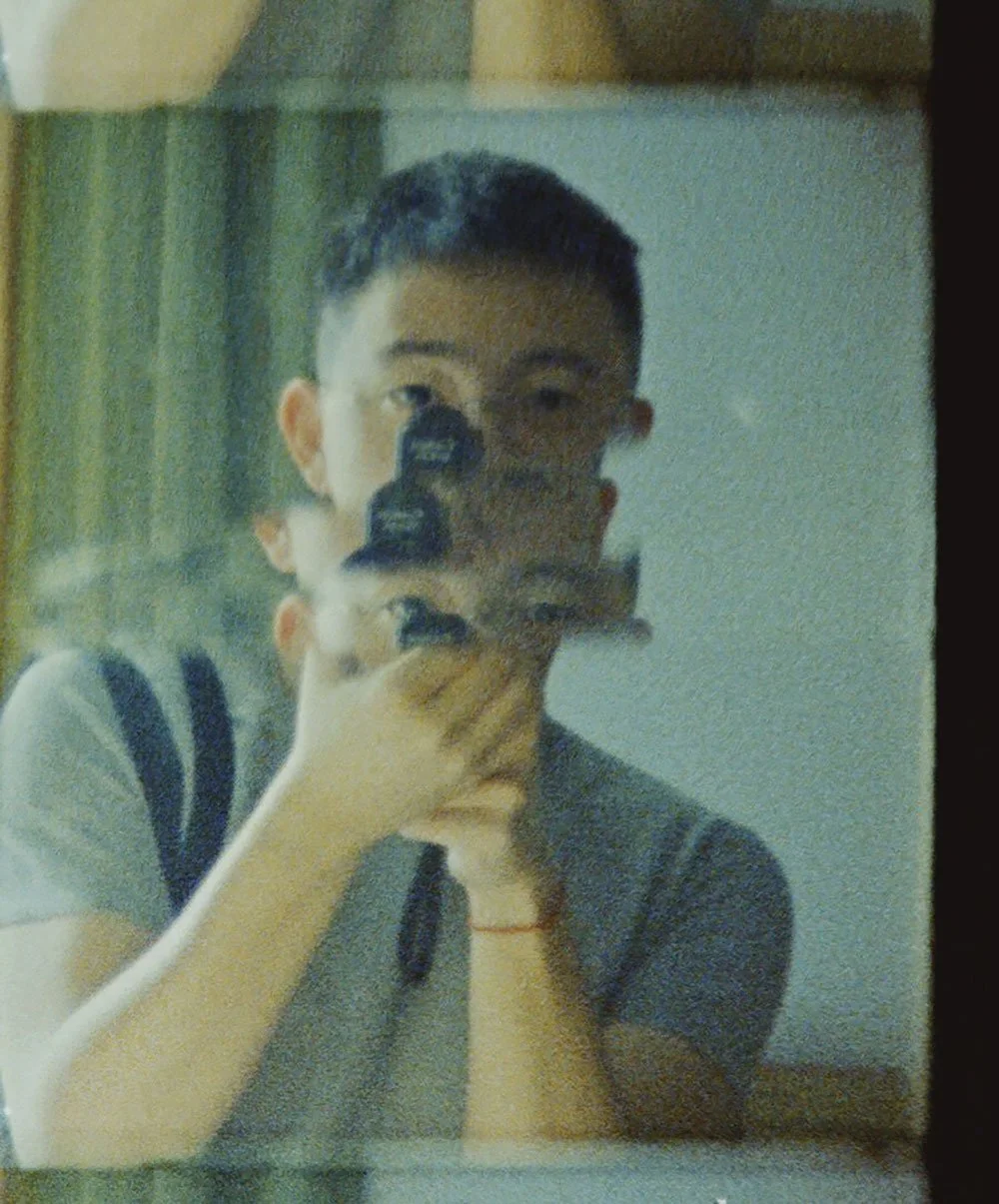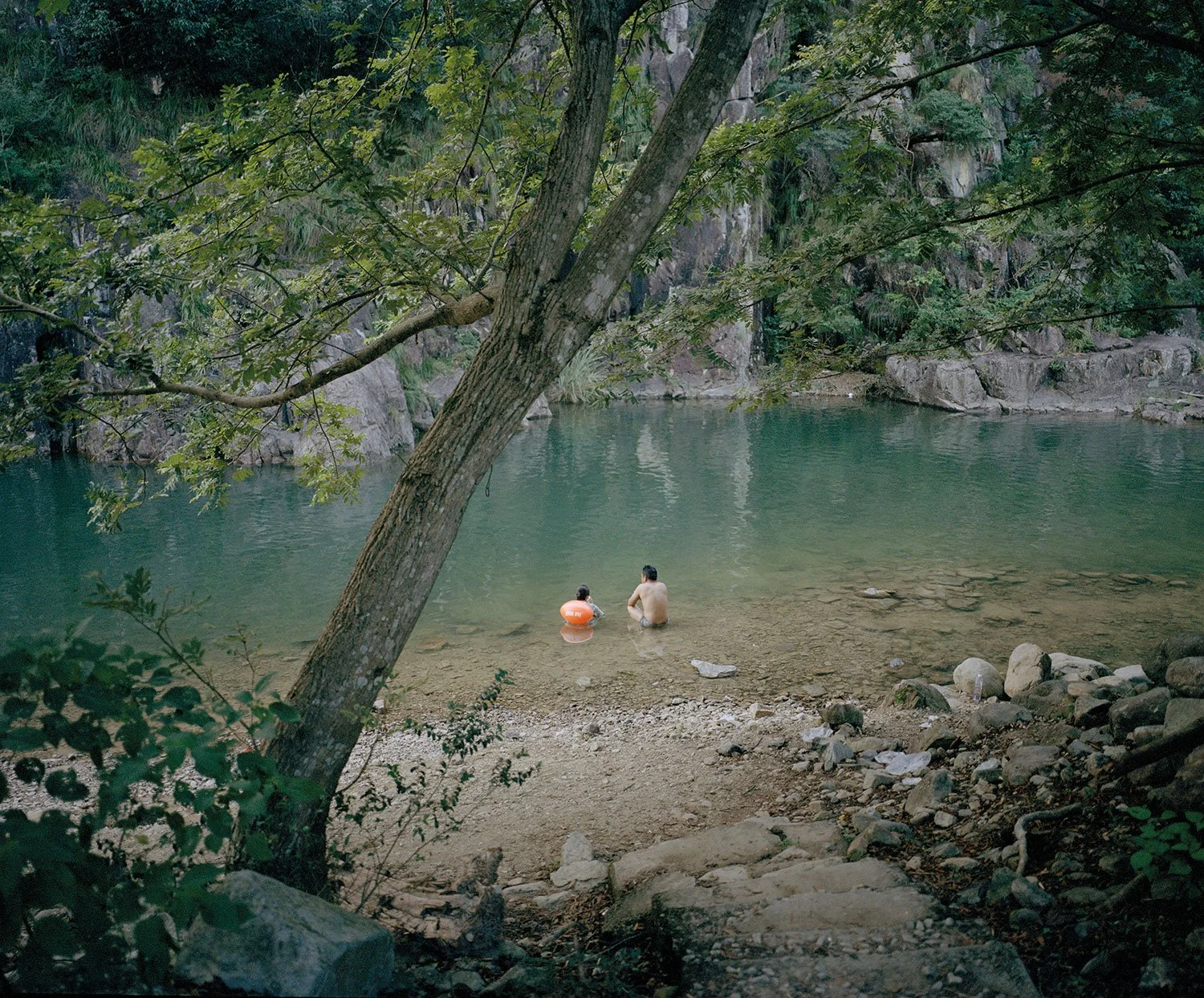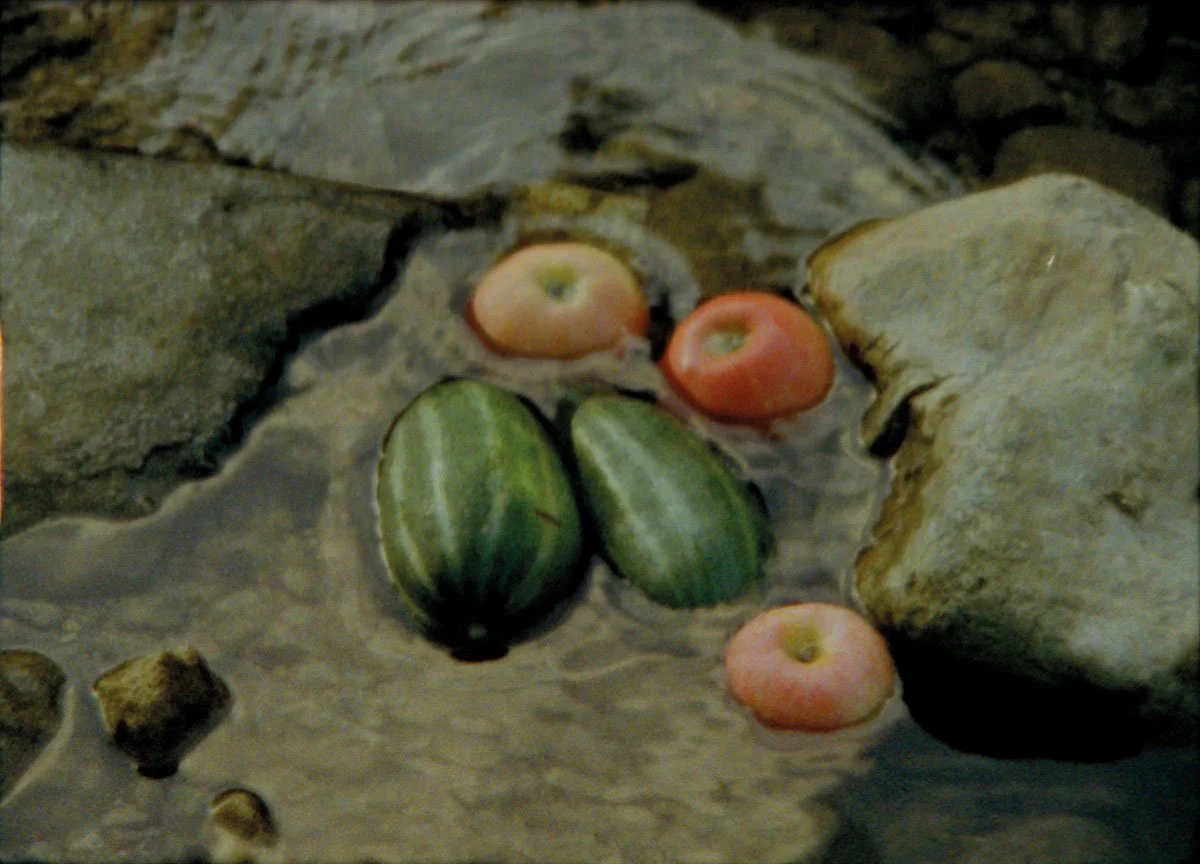SHULI HUANG
A peek behind the scenes of ‘Will You Look At Me’, winner of Queer Palm for Best Short Film at the Cannes Film Festival 2022, reveals a contemporary Chinese story about identity.
Film: 'WILL YOU LOOK AT ME'
WINNER OF QUEER PALM FOR BEST SHORT FILM AT THE CANNES FILM FESTIVAL 2022
INTERVIEWER JANE ZHENG
What Shuli Huang presented within the twenty minute screen time of Will You Look at Me is a delicate, personal, yet genuine narrative. Fleeing New York during the Covid-19 outbreak, bidding farewell to his partner, moving back to his hometown in China with his parents. With his 8mm/16mm film camera, Huang didn’t merely gaze at his own moments of love, but documented fear and uncertainty in the same manner too. In some snatches, the anecdote seemed far away, as if shot in a third person’s objective view; yet in other fragments, it felt so intimate that it reminded us of his inspiration: the connection of a baby and a mother in the womb. Immersed in the closest memory between him and his loved ones, he asks through his camera lens: when I look towards you, Will You Look at Me?
Growing up in Wenzhou, Shuli Huang always played the typical role of a parent’s favourite. He never failed to meet expectations: to be the pleasing child with good grades wasn’t mission impossible to him. But in the end, it was merely a ‘play’ and a ‘character’. With rebellious tendencies and a willingness to go against the grain, Huang decided that life shouldn’t continue on the planned route. “I just suddenly didn’t want to study anymore during high school. It was a life path that I could easily see within a glance – graduating, going to university, graduating again, getting a career at a civil service or something similar. It was a system with carefully constructed signs to follow.” Therefore, studying film at Beijing Film Academy wasn’t a deliberate choice, but a method to avoid the foreseeable mundane pattern that he undoubtedly refused. “I don't think I could’ve said how much I loved the art, nor could I say that I was so obsessed with film that I was convinced about becoming a director” – but, it was the form of escape he needed during his teenage years.
After completing his Undergraduate studies in Beijing, Huang departed for a Masters of Fine Arts at New York University just before the pandemic happened. It was a “privilege to still be a child, to go abroad and escape from society”, he describes, as many of his peers, despite understanding the repetitive social structure, still chose to enter the monotonous system. Hence, this second degree was a hiatus for him – or a fork in the road to be more exact. “It didn’t make me a completely different person, but it was only after I returned to China during the Covid period of my degree, after I spent so much time alone with myself, that I finally grasped what I wanted to say through film. It was also then that I realised that film was the most familiar form of expression that lies in my body.”
A short film that uncovers personal sensations: whether that’s coming out, the paradox of parental love, or cultural belongingness. The toughest aspect was not the shooting, rather the process of editing. Going back and forth between sequences for almost six months, it was like a long swim into the nostalgic memories and conversations that exposed an authentic story about himself. “If you’re going to reveal yourself in your own film, it's a very painful process of going back again and again about the past and endlessly asking yourself questions. Being true to yourself is hard,” he recalls.
“IF YOU ARE GOING TO REVEAL YOURSELF IN YOUR OWN FILM, IT’S A VERY PAINFUL PROCESS OF GOING BACK AGAIN AND AGAIN ABOUT THE PAST AND ENDLESSLY ASKING YOURSELF QUESTIONS. BEING TRUE TO YOURSELF IS HARD.”
To this day, Will You Look at Me still is a private letter dedicated to his parents instead of the fancy titles given by the viewers. Pointing his camera at his beloved ones from start to finish, this retrospective trace is the reason behind intentionally shooting everything on film. “The outcome is like a handwritten letter, something that has a physical presence rather than being printed and processed by machines. Like the polaroid picture that you’ll take during a family gathering, it’s the same sort of souvenir that you can touch and feel, a specific texture that gives the story warmth and temperature,” he explains. Similar to how Renaissance art represents a period of religious domination in society or modernism representing technological advancements, every artistic medium corresponds to a memory of its time – as does the medium of film. It’s a precise rawness that directly reminds people of cinema in the late 20th century, or to be more exact, the era when Huang’s parents were still teens. “In simpler words, because this film explores how I’ve grown up, I would always wonder what my parents’ world was like when they were my age. So, using film was a natural process of glancing into their world. It carries my gaze to their youth.”
When asked about his reaction towards winning Queer Palm at Cannes Film Festival, Huang surprises us with an answer that subverts a typical award speech. “I'll be honest, there was much more interest on the short film category this year because China had no long feature film nominees at Cannes. But because I won the award, I got so much attention that the next day there was a low-resolution leakage of my film – the exact opposite of what I wanted to show. So, what sort of good mood could I be in? Before I had a chance to experience the joy, all the troubles had already followed.” It wasn’t the common film leakage of a few clips, but an illegal leakage of the whole twenty minutes which some tried to exploit commercially by selling. What exacerbated the situation was the rapid speed. The access link quickly spread to his hometown, causing his parents to be under immense pressure in Wenzhou as all their relatives have seen it. While commentaries praised Huang’s valour in exposing a personal narrative that’s often considered a taboo in Asian culture, to him, real life consequences meant that it was possibly closer to being forcibly naked in public. “If I knew that it would be sent to Cannes and initiate a discussion of this scale, I wouldn’t have been brave enough to make this film in the first place,” he clarifies.
“Everyone willingly puts labels on themselves so that they can be categorised into a group of people. This would allow them to find similarities between each other, to find a way to connect,” Huang elaborates on the underlying dialogue on identity in the film. New York was where he began to ponder on his own self-recognition. “You only start to look back at yourself after truly sensing a possibility of diverse existence in a tolerant environment like New York. Yes, it’s true that humans label themselves into a group to be connected to others. But it’s also true that your own ‘exclusivity’ will unveil when everyone’s intertwined,” he shares. People crave to belong, but probably never ask why they belong. It seems as if we’re stepping into a world of signs, where descriptive captions replace who we are. Though Huang had also undergone moments of doubt and retreat after being put under a public regard, the authenticity in Will You Look at Me will forever remind us of the sincere courage we require to answer our own questions.
“EVERYONE WILLINGLY PUTS LABELS ON THEMSELVES SO THAT THEY CAN BE CATEGORISED INTO A GROUP OF PEOPLE. THIS WOULD ALLOW THEM TO FIND SIMILARITIES BETWEEN EACH OTHER, TO FIND A WAY TO CONNECT.”
Aspiring to creatively progress in a spontaneous manner, Huang hasn’t thought about specific future projects yet. “I might even drop out and try another career. Recently, I’ve been interested in interactive art and it’s possible that there might be a more appropriate way than film,” he answers. Similar to how he never deliberately selected directing as his path, we surely won’t be in disbelief when we see his name in another field next. But in retrospect, it’s undeniable that cinema has always been a cherished asset for his inspiration.
2022 sees another challenging year for Chinese cinema, but Huang reassures us with a palpable resilience: “It’s never easy no matter which era you’re in, but all the independent filmmakers I know are still insisting on making their voices heard. Everyone is still writing and filming, and we all have each other's encouragement and company.” And amongst them, we certainly will see Shuli Huang.






